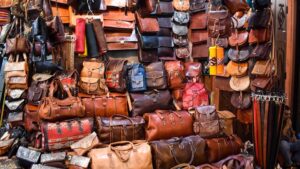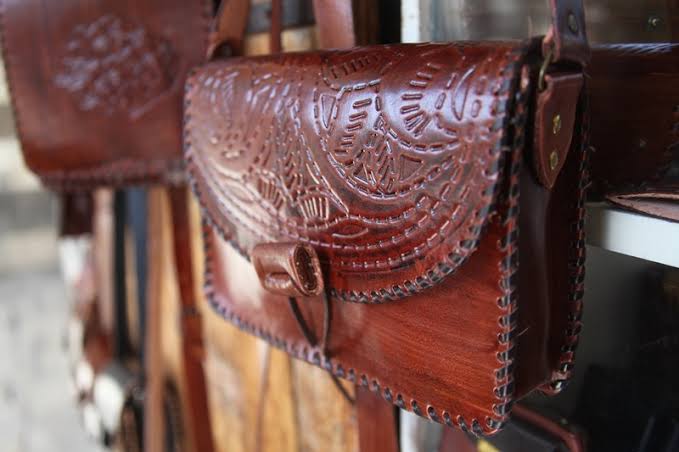Syrian products that use natural leather are diverse and characterized by certain specifications that match international standards, as the leather industry and tanning are among the ancient traditional professions that most governorates are famous for.
For hundreds of years, the workers in the natural leather industry in Damascus Old City have inherited the profession from generation to generation.
The leather industry in Syria has developed from the manufacture of tents, sheaths of daggers and swords and some household items to the manufacture of shoes, bags and clothes.
This industry continues to provide the finest products, despite the difficulties it has been exposed to, like other industries, due to the terrorist war on Syria and the economic blockade that constitutes a major obstacle to securing the requirements of any industry.
The leather tanning process requires several materials in its various stages, as each animal skin has different specifications that play a role in the way it is tanned, then manufactured.
 According to the head of the Tanning and Leather Committee at the Damascus Countryside Chamber of Commerce,
According to the head of the Tanning and Leather Committee at the Damascus Countryside Chamber of Commerce,Muhammad Al-Hallaq, the basis of the leather industry is tanning to transform the animal skin, after skinning, into a useful leather product that is protected from rot and gives it continuity and flexibility.
Al-Hallaq said that the skin comes from the slaughterhouses; it is salted and soaked, so that the skin regains the water and liquids it lost during the preservation and salting process.
After that, there is the hair removal stage, which is the basic stage in which the skin is ready to move through different types of tanning, and it can be mineral, vegetable or mixed tanning, with vegetable tanning being the most commonly used, he added.
Finally, the leather is moved to the process of dyeing to have the color and then to the machines to determine the thickness. The last stage, the skin continues its journey to the workshops and leather factories for manufacturing it according to the market requirements and needs.
The international specifications are applied to the product that is sold locally or exported. Previously, the leather industry in Syria was one of the industries competing with neighboring countries and even other countries.
Raghda Sawas

